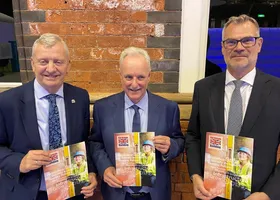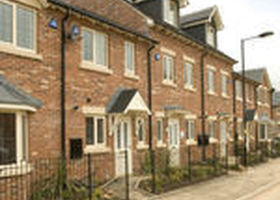
After a week of manifesto pledges and the leaders' debate, it is hard to avoid the nasty conclusion that construction is being sidelined. All parties are playing it safe in a phoney war that fails to tackle the big issue.
Where are the bold policies to reduce the huge deficit without killing the fragile recovery?
Without more creative ideas serious cuts are looming from whomever it is that finally takes up residence at Number 10.
Fundamentally, we cannot go on spending £5 for every £4 collected in tax. For the near two million people still employed in the industry, the unpalatable truth is that construction is being seen as an easy target, not part of the solution.
All parties gestured towards low carbon economies, though firm commitments were thin on the ground. Instead the industry has been offered a handful of tinkering measures aimed at rekindling housing repair and some new council house building. These are meaningless gestures, certainly well short of the ambition hoped for by industry.
None of the parties have grasped that house building presents a golden opportunity to bump start the economy. It is high time we got back to focusing on wealth generation, bolstering manufacturing and construction, which all drive forward recovery.
Mike Leonard, director of the Modern Masonry Alliance, echoes what many feel. "We have heard nothing to give the industry hope in the short and medium term future of the industry. It is easy to talk about ambitious high speed rail schemes, but these are a long way off.
"All the evidence from previous recessions shows that investing in house building and therefore home grown manufacturing is the way to build a recovery," he argued.
"The industry is littered with skilled people without jobs. This must be tackled or the state will simply waste their expertise and foot the bill as they age," he warned.
"There is a crying need to tackle the issue of young skills and harnessing the experience of the over fifties who are now out of work."
The Federation of Master Builders shares his views. The politicians have ignored the compelling arguments that the construction industry marshalled in the run up to the election.
Richard Diment, director general of the FMB, said: "The policies outlined in the party manifestos all fail to sufficiently recognise the important contribution that the construction industry can and should be making to help the economic recovery."
As it stands, Labour Party plans to build an extra 50,000 council homes over the next five years are window dressing, doing little for the five million people on the social housing waiting list.
Conservative plans to abolish national housing targets will leave house builders hostage to the whims of local communities about whether they want to see new homes in their area.
The Liberal Democrat's policy to equalise VAT for housing repair and new build at an overall revenue neutral level is simply robbing Peter to pay Paul. This is likely to impede new house building.
That said the Lib Dems come closest to understanding the arguments. The one-off £3.1 billion stimulus package to create 100,000 jobs is a step in the right direction. The package aims to return 250,000 empty homes into use and includes a £400m pot to insulate homes.
A lot can be gleaned from what the parties didn't say in their manifestos. There may have been support for Crossrail but with the exception of Labour, which doggedly continues its spending pledges, there was no mention of school or road building. In this economic climate we all know what that means.




















































